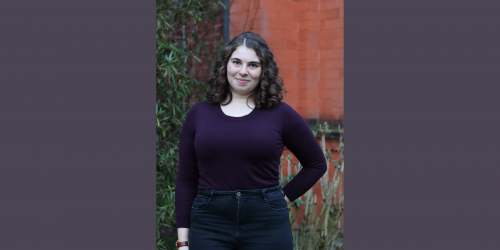
#LivefromLucy: "LGBTQ+ Inclusion at Universities: Testimonies and Recommendations from the ‘Out at Cambridge’ Study"
In celebration of LGBTQ+ History Month, Elisabeth Sandler addressed why LGBTQ+ inclusion at universities matters.
In celebration of International Day of Women and Girls in Science, Lucy alumna Dr Anna Lappala discussed her highly nonlinear career path.
In this virtual talk, Dr Lappala discussed her nonlinear career path and how she ended up getting a PhD in Physics even though her dream growing up was to be a ballerina.
"Most women are born with two X chromosomes. I was born with only one, but this did not stop me from coming up with a unique way to model the 3D structure of chromosomes and their dynamics — coincidentally, the first chromosome I ever modeled was the X chromosome, the model of which I will share with you in this talk. Defying expectations can often be transformative and lead to creative solutions. One cannot achieve goals by following the path of least resistance— challenge is what leads to growth. If there is no challenge, change becomes impossible; no one else but you knows your limits, and only you can push yourself beyond those and get out of your comfort zone to make a change. What may seem like a setback in the moment can be turned into a force to guide you and pave your own path to success. Fearlessly setting your own standards and defying expectations is what will give you the power to transform your visions into reality."
- Dr Lappala
About the speaker
Dr Anna Lappala became a member of Lucy Cavendish College in 2011 and completed her PhD in Physics under Prof. Eugene Terentjev at the Cavendish Laboratory in 2015. Shortly after, she worked in the Department of Theoretical Chemistry with Prof. Daan Frenkel FRS as a Newton Trust Fellow, after which she moved to New Mexico where she worked at Los Alamos National Laboratory as a Post Doctoral Center for Nonlinear Studies Research Fellow. At LANL, Dr Lappala worked on the largest biomolecular simulation to date - a billion atom simulation of an entire gene, and came up with a data-driven algorithm to model entire chromosomes and genomes. Dr Lappala is currently an Instructor in Investigation at Harvard University and Massachusetts General Hospital, and an Associate of the Physics Department.